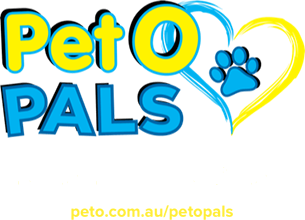Training Your Puppy
Training your puppy does not have to be boring and formal. In fact, the more fun you have with your puppy, the better! Like us, dogs learn by cause and effect. If we touch a hot pot, it burns! If we study, we do well in school! Similarly, if your dog barks for your attention and you oblige, it works! If your dog sits and waits for his dinner and he gets to have it, it works!
It is important to remember that dogs learn better though things that makes them happy and are positively reinforced. For example, teaching your pup to sit and then rewarding them with a treat or affection will produce a far better result than physically forcing them to it.
However, when trying to stop an unwanted behaviour, you should try and understand what your dog is trying to achieve from the behaviour or what is underlying cause of the behaviour. Then work on not allowing your dog to have success with the behaviour, teaching an incompatible behaviour or address the underlying cause.
For example, if your puppy is jumping on you for attention, you have the option of ignoring your pup (but some puppies can be very persistent!) or teaching them to sit before they get any attention. Or if you have a puppy that is barking at every dog it sees, your first step is to understand if they are doing that out of excitement or because they are trying to keep the dog away because they are scared. The way you approach training will be dependent on what they are trying to achieve with their behaviour.
Keep It Short But Consistent
Puppies (like kids!) have short attention spans so it’s important to keep training sessions short. Also remember that training continues past the session as well. The more consistent you are with your puppy from the start the less likely your puppy will be to pick up unwanted habits. For example, if you want your pup to sit to greet you instead of jumping, training it during a training session but allowing it when you arrive home from work sends the puppy mixed messages.
Have Fun
Have fun with your puppy! The more fun your puppy is having with you, the easier it will be to teach new behaviours. Dogs learn through positive associations and reinforcements. Showing your puppy what you’d like them to do instead of always reprimanding them for the things you don’t want them to do will go a long way.
Use a marker word or a clicker to let them know they are doing the right thing and reward (and celebrate!) them with some tasty treats or their favourite toy each time they get it right.
Stay Positive And Pay Well
If your puppy seems distracted or does not understand, take a step back and assess the situation. Is the environment too distracting or perhaps your puppy is full and therefore not interested in treats? Don’t force the training! If necessary, ask the puppy for something simple like a sit, then end the training session on a positive note.
While your pup is still learning, don’t shy away from rewarding them each time they do something correctly. Too often, people rush to phase out treats and rewards. This just results in a pup who loses motivation. Just like you get paid to go to work, your pup should also get paid while they are learning. Sure, overtime you can fade out the rewards but while they are young and learning, it pays to be generous. Also, rewards don’t always have to be about treats! Try rewarding your puppy with affection or toys.
Examine Your Pup’s Diet
Diet plays an important part in your puppy ability to grow, learn and develop. Puppy foods are formulated with the right nutrients and proteins for to support their growing bones.
If you are finding your puppy is constantly hyperactive, is scratching a lot or is consistently having loose stools. It might worth investigating their diet. Every dog is different and therefore what works well for one dog might not sit well with another. We encourage you to talk to your vet or come in store to speak with one of our expert team members who can help you find a more suitable diet for your pup.
Focus On Life Skills
While it sounds way more exciting to teach your puppy cool tricks, it’s more important to teach them skills they will be using daily. Things like sitting for attention, coming when called, staying, walking on a lead, playing with appropriate toys and not biting the furniture or the humans will set them up for success as they get older.
Of course, you should still have fun and teach you puppy exciting tricks, just don’t lose focus on the essential life skills.
Diet plays an important part in your puppy ability to grow, learn and develop. Puppy foods are formulated with the right nutrients and proteins for to support their growing bones.
If you are finding your puppy is constantly hyperactive, is scratching a lot or is consistently having loose stools. It might worth investigating their diet. Every dog is different and therefore what works well for one dog might not sit well with another. We encourage you to talk to your vet or come in store to speak with one of our expert team members who can help you find a more suitable diet for your pup.


